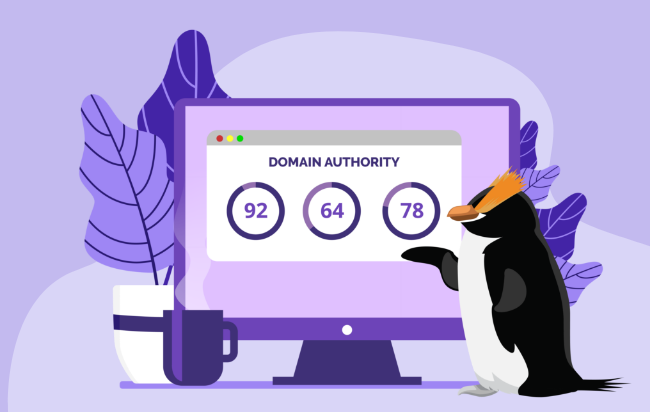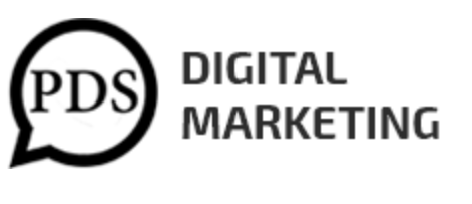Boost SEO with Moz Domain Authority Checker
The Moz domain authority checker is a powerful tool that allows website owners and SEO professionals to measure the authority of their domains. Developed by Moz, a leading provider of SEO software, this tool provides a numeric score ranging from 1 to 100, indicating a website’s overall strength and credibility in search engine rankings. In the world of SEO, domain authority holds significant importance as it is a reliable predictor of a website’s performance. A high domain authority indicates a greater likelihood of ranking well in search engine results, attracting organic traffic, and gaining visibility among target audiences. Understanding and leveraging domain authority is essential for optimizing SEO strategies and achieving online success.
Understanding Domain Authority
Domain Authority (DA) is a Moz-developed metric evaluating a website’s authority and credibility and impacting search engine rankings.
What Factors Determine Domain Authority?
- Link Profile: The quality and quantity of backlinks pointing to a website are crucial factors in determining Domain Authority. High-quality backlinks from authoritative and relevant websites have a positive impact on DA.
- Website Structure and User Experience: Website speed, mobile-friendliness, and overall user experience contribute to Domain Authority. Well-optimized websites with smooth navigation and engaging content tend to have higher DA.
- On-Page Optimization: Proper on-page optimization, including keyword usage, meta tags, and relevant content, also plays a role in Domain Authority. Well-optimized pages that align with search intent are more likely to have a higher DA.
- Social Signals: While not as significant as other factors, social signals, such as likes, shares, and comments on social media platforms, can contribute to Domain Authority.

How Does Domain Authority Affect Search Engine Rankings?
- Competitive Edge: Websites with higher Domain Authority generally have a better chance of outranking their competitors in search engine results. A higher DA can indicate a stronger online presence and a more authoritative website in the eyes of search engines.
- Ranking Potential: Websites with a higher Domain Authority often have better chances of ranking for competitive keywords and gaining visibility in organic search results. Search engines consider websites with higher DA as more reliable and trustworthy sources of information.
- Link Building Opportunities: Websites with a higher Domain Authority tend to attract more backlink opportunities. Other websites are more likely to link to a website with a higher DA, strengthening its link profile and authority.
- Trust and Credibility: Domain Authority serves as a measure of a website’s trustworthiness and credibility. A higher DA can instill user confidence, increasing click-through rates and improving user engagement.
Importance of Monitoring Domain Authority
Regularly monitoring your website’s Domain Authority (DA) is crucial for effective SEO strategy, as tracking changes can improve website performance and optimize efforts.
Why Should You Regularly Check Your Website’s Domain Authority?
- Measure SEO Progress: Domain Authority measures SEO effectiveness, enabling regular monitoring of the website’s DA to assess optimization strategies’ impact on authority and search engine rankings.
- Identify Areas for Improvement: Monitoring Domain Authority helps identify website deficiencies, enabling focus on backlinks, optimization, and user experience to enhance authority over time.
- Competitor Analysis: Tracking Domain Authority compares website authority to competitors, assessing the position and identifying opportunities for improvement.
How Can Tracking Changes in Domain Authority Help with SEO Strategy?
- Evaluate the Impact of SEO Efforts: Monitor Domain Authority changes to assess SEO strategies’ effectiveness, with an increase indicating success and a decline indicating reevaluation.
- Identify Link-Building Opportunities: Tracking Domain Authority changes helps identify the link-building impact, with an increase in confirming high-quality backlinks’ value. At the same time, a decline suggests toxic or low-quality backlinks needing attention.
- Adjust SEO Strategy: Domain Authority changes reveal SEO strategy effectiveness; significant increases suggest continued strategies, while decreases require adjustments to address potential issues.
Utilizing Moz Domain Authority Checker
Moz Domain Authority Checker provides SEO insights, enhancing website authority and credibility through metrics.
How Does the Moz Domain Authority Checker Work?
The Moz Domain Authority Checker calculates a website’s Domain Authority (DA) based on various factors. It analyzes the website’s link profile, considering the quality and quantity of backlinks and other key metrics. The tool uses a proprietary algorithm developed by Moz to assign a numerical score ranging from 1 to 100, indicating the website’s authority and potential performance in search engine rankings. The higher the DA score, the stronger the website’s authority and the greater its chances of ranking well in search results.
What Insights and Metrics Does it Provide?
- Domain Authority (DA): Moz Domain Authority Checker evaluates a website’s DA score, indicating its overall authority and credibility, enabling comparisons to other websites in search engine ranking.
- Page Authority (PA): The tool provides a Page Authority (PA) metric, assessing the authority of individual pages on a website, indicating their likelihood of ranking well in search results.
- Spam Score: Moz Domain Authority Checker uses a spam score metric to assess website penalties and associated spammy practices, indicating a lower risk of penalties.
- Linking Domains: The tool provides insights into the number of unique domains linking to your website. This metric helps you assess the diversity and quality of your backlink profile.
- Anchor Text Analysis: Moz Domain Authority Checker analyzes anchor text in backlinks, revealing common ones, enabling optimization of diversity and understanding of other links’ links.
Strategies for Boosting Domain Authority
Use effective strategies to improve the website’s Domain Authority (DA) for credibility, search engine rankings, and visibility.
How Can You Improve Your Website’s Domain Authority Score?
- Build High-Quality Backlinks: Acquire high-quality backlinks from authoritative websites using a natural, organic strategy, including guest posting and collaboration.
- Optimize On-Page Elements: Optimize website elements for search engines and user experience, including meta tags, headers, and content.
- Enhance User Experience: Enhance the website user experience by optimizing speed, mobile-friendliness, and navigation, boosting traffic and engagement.
- Create High-Quality Content: Create engaging, informative content with industry insights, tutorials, and original research for backlinks and website authority.

What are Some Best Practices for Increasing Domain Authority?
- Consistency and Persistence: Developing Domain Authority requires time, effort, consistent content, link building, and technical optimization.
- Social Media Presence: Create a robust social media presence to increase visibility and attract backlinks.
- Improve Website Architecture: Optimize website structure, navigation, indexability, and authority distribution through logical hierarchy and internal linking.
- Monitor and Disavow Toxic Backlinks: Monitor backlink profiles regularly to identify and remove harmful links, preventing a negative impact on Domain Authority.
- Foster Expertise and Authority: Establish expertise in your niche by sharing industry insights, participating in forums, contributing to reputable publications, and attracting backlinks.
Analyzing Competitors’ Domain Authority
Analyzing competitors’ Domain Authority is crucial for SEO strategy development and identifying opportunities for improvement.
Why is it Important to Compare Your Website’s Domain Authority to Competitors?
- Benchmarking: Assessing a website’s Domain Authority against competitors helps assess industry position, authority, and credibility in the niche.
- Identifying Strengths and Weaknesses: Analyzing competitors’ Domain Authority helps identify strengths and weaknesses, enabling SEO strategy adaptation to capitalize on opportunities.
- Understanding the Competitive Landscape: Comparing Domain Authority helps understand the competitive landscape, identify competitors with higher authority, analyze strategies, and inform SEO tactics.
How Can You Use this Information to Enhance Your SEO Strategy?
- Set Realistic Goals: Analyzing competitors’ Domain Authority provides industry insights, setting realistic goals for website improvement and aiming for similar levels over time.
- Learn from Competitors: Study competitors with higher Domain Authority to learn SEO strategies, analyze backlink profiles, content, and user experience, and incorporate best practices.
- Identify Link-Building Opportunities: Analyze competitors’ backlink profiles to identify link-building opportunities, reach out to unlinking websites, and pitch content or offerings.
- Differentiate Your Approach: Understanding competitors’ strengths and weaknesses helps identify market gaps, differentiate SEO, create unique content, target less competitive keywords, attract the audience, and enhance website authority.
- Track Progress: Monitor competitors’ Domain Authority changes to gauge SEO efforts, identify trends, and adapt SEO strategy for competitiveness in an evolving landscape.
Incorporating Domain Authority into SEO Campaigns
Domain Authority significantly impacts SEO campaigns through keyword targeting, content optimization, link building, and outreach efforts, enhancing overall strategy.
How Can You Leverage Domain Authority for Keyword Targeting and Content Optimization?
- Keyword Targeting: Select target keywords with moderate competition and lower Domain Authority (DA) to improve search engine rankings by outranking competitors with lower DA.
- Content Optimization: Analyze high Domain Authority websites for target keywords, identify common themes, structures, and elements, and optimize your content by incorporating similar strategies while maintaining uniqueness and value.
- Internal Linking: Strategically use internal linking to pass authority throughout your website, linking high-authority pages to relevant ones, boosting ranking potential, and establishing a well-structured system.

What Role Does Domain Authority Play in Link Building and Outreach Efforts?
- Targeting High-DA Websites: Prioritize high-DA websites for link building and outreach, acquiring authoritative backlinks to enhance Domain Authority and improve search engine rankings.
- Assessing Link Quality: Evaluate backlink quality using Domain Authority (DA) to identify trustworthy websites and avoid low-quality or spammy ones, as they can negatively impact SEO efforts.
- Outreach and Pitching: Emphasize the benefits of collaborating with websites with a respectable Domain Authority, highlighting the advantages of linking to authoritative content and enhancing SEO efforts.
- Competitor Analysis: Analyze competitors’ backlink profiles and Domain Authority, identify linking websites, and assess their potential value as backlink sources. Reach out and pitch content or expertise for valuable backlinks.
Tracking Progress and Making Adjustments
Explore the frequency and steps to take based on the insights.
How Often Should You Check Your Website’s Domain Authority?
The frequency of checking your website’s Domain Authority depends on various factors, including the competitiveness of your industry, the age of your website, and the intensity of your SEO efforts. However, checking your Domain Authority at least once a month is generally recommended to monitor progress and identify trends.
What Steps Can You Take Based on the Insights Gained from the Moz Domain Authority Checker?
- Track Changes Over Time: Assess SEO progress by comparing Domain Authority (DA) with previous measurements, indicating success or strategy adjustments.
- Analyze Backlink Profile: Moz Domain Authority Checker assesses website backlink profiles, identifying high-quality and harmful sources for improvement.
- Identify Competitors: Examine competitors, identify backlinks, content quality, optimization, user experience, and adapt SEO strategies.
- Refine Content Strategy: Revisit content strategy if Domain Authority Checker shows stagnant or declining DA, analyze content quality, relevance, and engagement, identify improvement areas, and address industry gaps.
- Adjust Link Building Approach: Assess link-building effectiveness using Domain Authority Checker insights, and determine if diversifying backlink sources, outreach, or refining the pitch is necessary for high-quality backlinks.
- Evaluate Technical SEO: Use Domain Authority Checker to enhance website speed, mobile-friendliness, and crawlability for improved authority.
- Monitor Competitor Progress: Track competitors’ Domain Authority using Moz Domain Authority Checker to identify changes and adapt strategies. Reassess and improve efforts if competitors increase authority.
The Moz Domain Authority Checker is a valuable tool for SEO practitioners and website owners, providing insights into your website’s authority, monitoring progress, and guiding decisions to improve SEO strategies. It helps track changes in Domain Authority, analyze backlink profiles, identify competitors, refine content strategy, and make necessary adjustments to boost website authority. To enhance SEO efforts and increase online visibility, take action today and implement the strategies discussed. For expert guidance on optimizing website performance, contact PDS Digital Marketing at 905-598-7898. Let us help you achieve your SEO goals and drive organic growth for your online presence.

